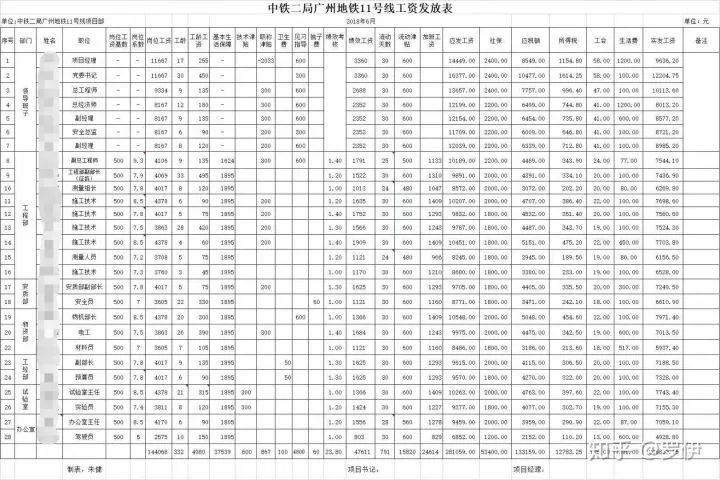There is a difference in professional title levels, responsibilities and benefits between senior engineers and senior engineers. Senior engineers are among the professional title system.The difference between deputy senior engineer and senior engineer coachSenior professional and technical positionsThe difference between deputy senior engineer and senior engineer coach, belongs to a high professional title, which meansThe difference between deputy senior engineer and senior engineer coachThey have deep theoretical knowledge and practical experience in a certain professional fieldThe difference between deputy senior engineer and senior engineer coach, able to independently undertake complex engineering projects and solve key technical problems. Their responsibilities usually include participating in project planning, design management and guidance, etc., technically.
The differences between senior engineers and deputy senior engineers are as follows: 1 The professional title levels are different. The senior and deputy senior officials refer to the level of professional titles, and each level has different types. For example, the college teacher series is a professor, the deputy senior officer is an associate professor, and the engineering series is a professor-level senior engineer or a senior engineer with excellent achievements, and the deputy senior officer is a senior engineerThe difference between deputy senior engineer and senior engineer coachThe titles of 2 different professional titles "Deputy Senior High" mainly include senior engineer and senior political engineer.
Senior engineers with different professional titles are one of the professional and technical titles. At a higher level, the deputy high and the positive high refer to "deputy senior titles" and "positive senior titles" respectively, which represent a more advanced professional level and is a recognition of higher qualifications and professional skills. Generally speaking, senior professional titles are based on continuous accumulation of experience and performance, and through strict review and recognition of senior engineers with differences in qualifications and professional abilities.
1 The two are different. Senior engineers are required to graduate with a bachelor's degree or above and have obtained the deputy senior title of senior engineer for 5 years. They have published more than 3 papers in technical journals above the municipal level or received more than 3 awards for scientific and technological progress at or above the municipal level. Senior engineers are required to graduate with a bachelor's degree or above and have obtained the intermediate title of engineer for 5 years. They have published more than 1 paper in technical journals above the municipal level or obtained awards for scientific and technological progress at or above the municipal level.
Senior engineers are divided into senior and deputy senior engineers. Deputy senior engineers are usually called senior engineers, while senior engineers are called professor-level senior engineers or researcher-level senior engineers. The specific names vary according to regional differences. The senior professional title is the highest level in the professional title system. It is divided into senior and deputy senior professional titles. It was originally based on the job name and actually represented the professional technical level, ability and achievement of professional and technical personnel. It has a academic title in the academic field.
Professional titles, as an important indicator to measure the technical strength and achievements of professional and technical personnel, are divided into five levels: positive senior deputy senior intermediate assistant level and technician level. Generally, senior engineers belong to deputy senior professional titles, while senior engineers who have reached the professor-level are considered to be positive and senior professional titles. The difference between the two is mainly reflected in the evaluation conditions and status. First of all, different deputy senior professional titles require bachelor's degree or above and are required.
In the professional title evaluation process, there are also great differences in the evaluation standards between senior engineers and professor-level senior engineers. The evaluation of senior engineers pays more attention to practical work ability and technical level, while professor-level senior engineers places more emphasis on scientific research results and academic contributions. Therefore, senior engineers and professor-level senior engineers have their own focuses on their career development paths and each has different career prospects. Generally speaking, senior engineers and professor-level senior engineers.
There are also significant differences in professional title evaluation standards between senior engineers and professor-level senior engineers. The evaluation of senior engineers is mainly based on actual work ability and project experience, while the evaluation of professor-level senior engineers pays more attention to scientific research results and academic contributions. Senior engineers pay more attention to the ability to solve problems in engineering practice, while professor-level senior engineers pay more attention to innovation ability and theoretical research level. The different levels of professional titles not only reflect the individual.
1 A full senior professional title and a deputy senior professional title are two different levels in the professional title system, which correspond in various professional fields. 2 In the field of education, a full senior professional title usually refers to a professor, while a deputy senior professional title refers to an associate professor. 3 In the engineering field, a full senior professional title can be a professor-level senior engineer or a high-performance senior engineer, while a deputy senior professional title is a senior engineer. 4 The deputy senior professional title covers multiple professional series, for example.




还没有评论,来说两句吧...